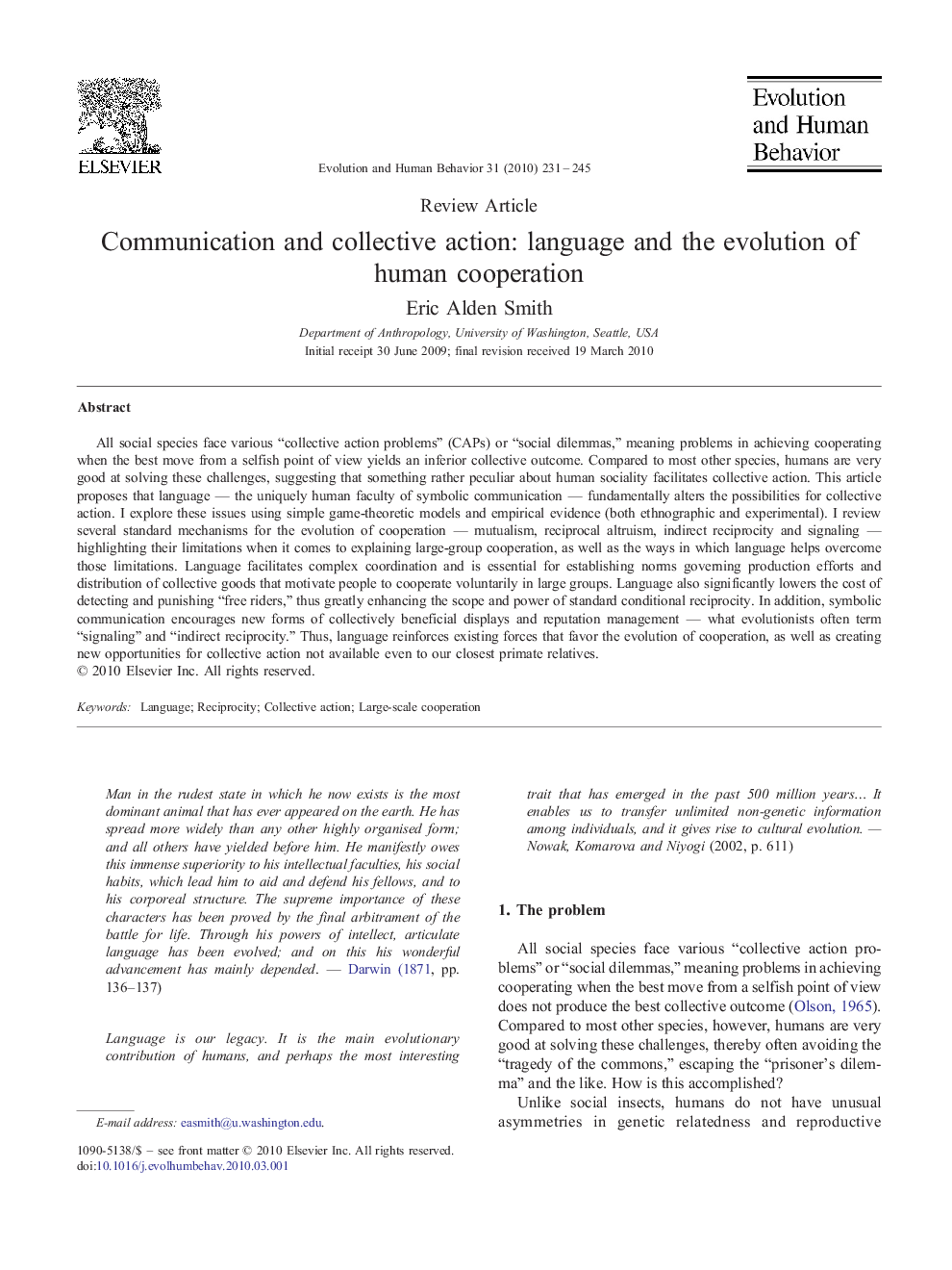| کد مقاله | کد نشریه | سال انتشار | مقاله انگلیسی | نسخه تمام متن |
|---|---|---|---|---|
| 943431 | 925469 | 2010 | 15 صفحه PDF | دانلود رایگان |

All social species face various “collective action problems” (CAPs) or “social dilemmas,” meaning problems in achieving cooperating when the best move from a selfish point of view yields an inferior collective outcome. Compared to most other species, humans are very good at solving these challenges, suggesting that something rather peculiar about human sociality facilitates collective action. This article proposes that language — the uniquely human faculty of symbolic communication — fundamentally alters the possibilities for collective action. I explore these issues using simple game-theoretic models and empirical evidence (both ethnographic and experimental). I review several standard mechanisms for the evolution of cooperation — mutualism, reciprocal altruism, indirect reciprocity and signaling — highlighting their limitations when it comes to explaining large-group cooperation, as well as the ways in which language helps overcome those limitations. Language facilitates complex coordination and is essential for establishing norms governing production efforts and distribution of collective goods that motivate people to cooperate voluntarily in large groups. Language also significantly lowers the cost of detecting and punishing “free riders,” thus greatly enhancing the scope and power of standard conditional reciprocity. In addition, symbolic communication encourages new forms of collectively beneficial displays and reputation management — what evolutionists often term “signaling” and “indirect reciprocity.” Thus, language reinforces existing forces that favor the evolution of cooperation, as well as creating new opportunities for collective action not available even to our closest primate relatives.
Journal: Evolution and Human Behavior - Volume 31, Issue 4, July 2010, Pages 231–245